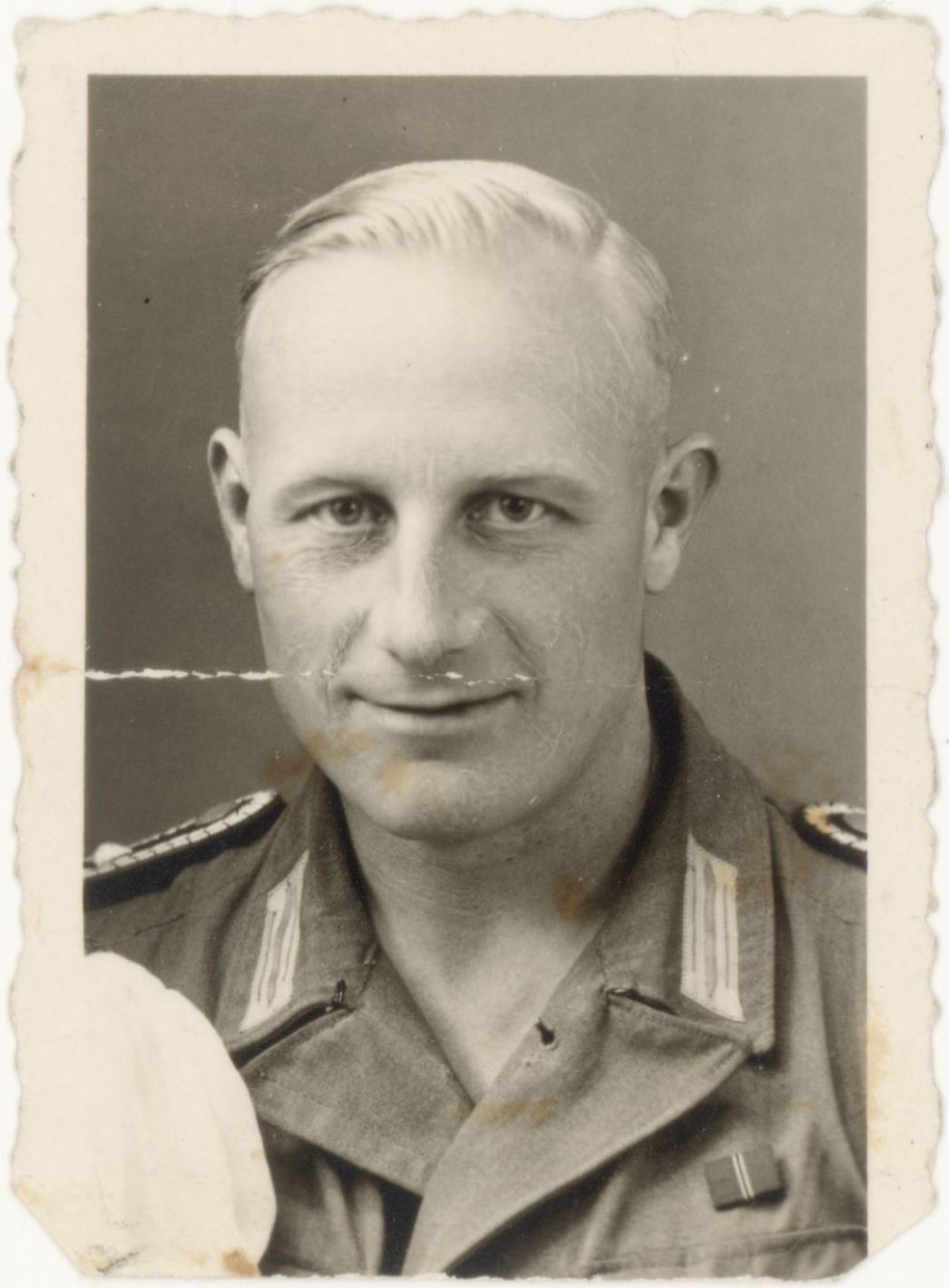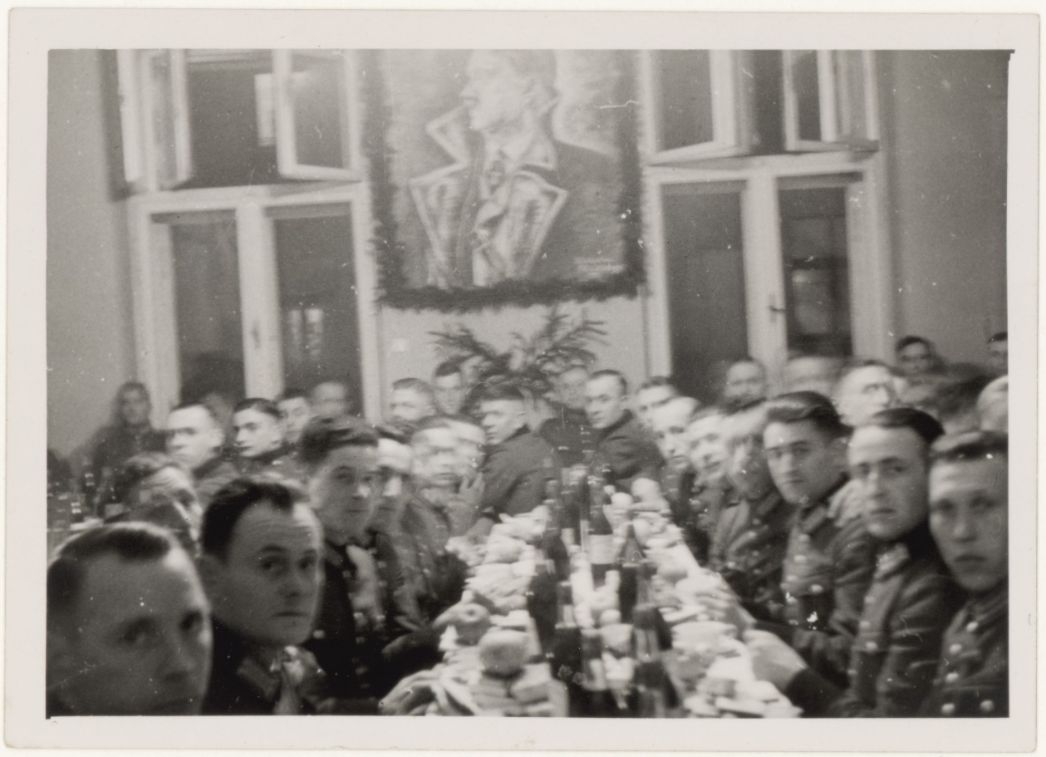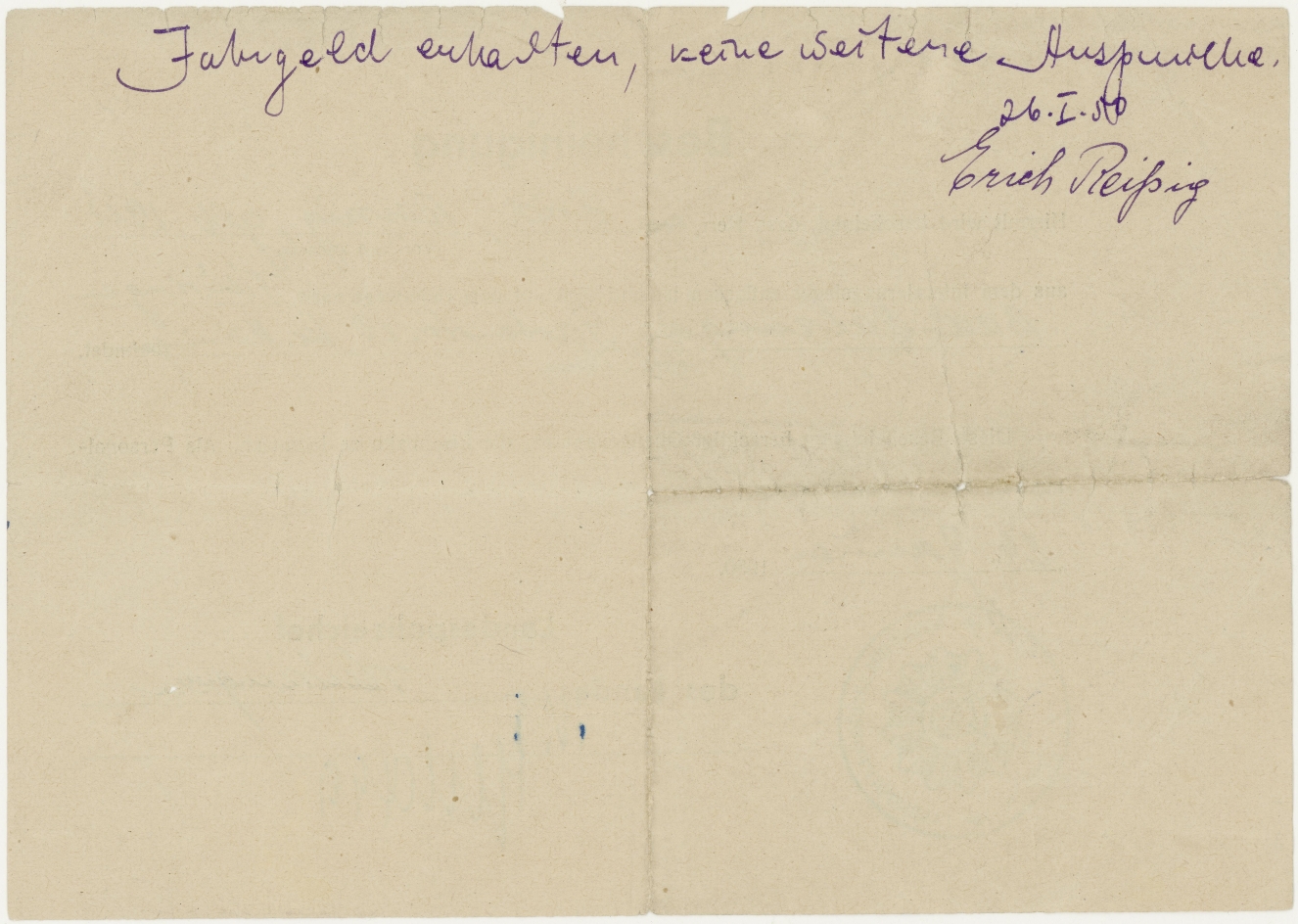Erich Reißig was born in Bad Salzungen in 1911 and trained to become a painter. He joined the Sturmabteilung (SA, “Storm Troopers”) in 1937, and joined the Schutzpolizei (‘Protection Police Force’) two years later. As a member of Schutzpolizei Battalion 311 Jena, he was deployed in Poland and the Soviet Union during the Second World War. The battalion was involved in raids, arrests, and mass shootings of the Polish, Soviet, and Jewish populations. His unit also destroyed infrastructure in Ukraine and Belarus.
In 1943, Reißig was transferred to SS Police Regiment 26, which also committed serious war crimes in the Soviet Union. A military tribunal in Minsk sentenced several of his comrades to death for this in 1946. Reißig himself was already in Special Camp No. 2 at this point. He had been arrested in Thuringia on October 29, 1945, and taken to Buchenwald on charges of being a “police collaborator.”
Erich Reißig was released on January 26, 1950. He returned to Bad Salzungen and changed jobs several times. He first worked as a painter and later as a clerk and sales manager. Erich Reißig died in Bad Salzungen on February 17, 1990.


Governor General Hans Frank spoke at this event. There, he reaffirmed his goal of making Kraków “judenfrei” (“free of Jews.”) The Jena Police Battalion 311 took part in mass shooting of Jews.
.jpg/jcr:content/3a_reissig).jpg)
.jpg/jcr:content/3a_reissig).jpg)

In a handwritten statement signed by Erich Reißig upon his release, he waived any “further claims” arising from his period of internment. He remained in the GDR. The GDR authorities never initiated any investigations against him for his involvement in Police Battalion 311.

